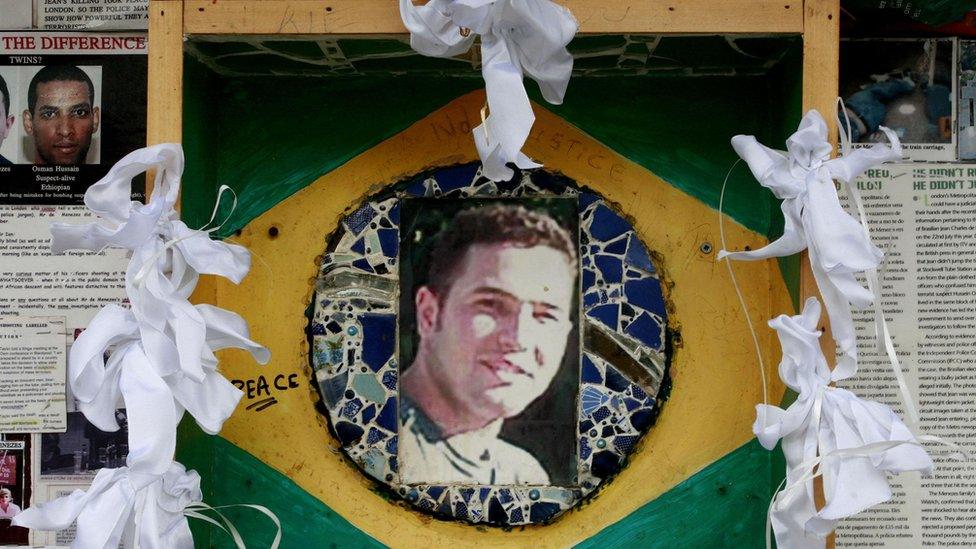Jean Charles de Menezes family loses European court fight
- Published
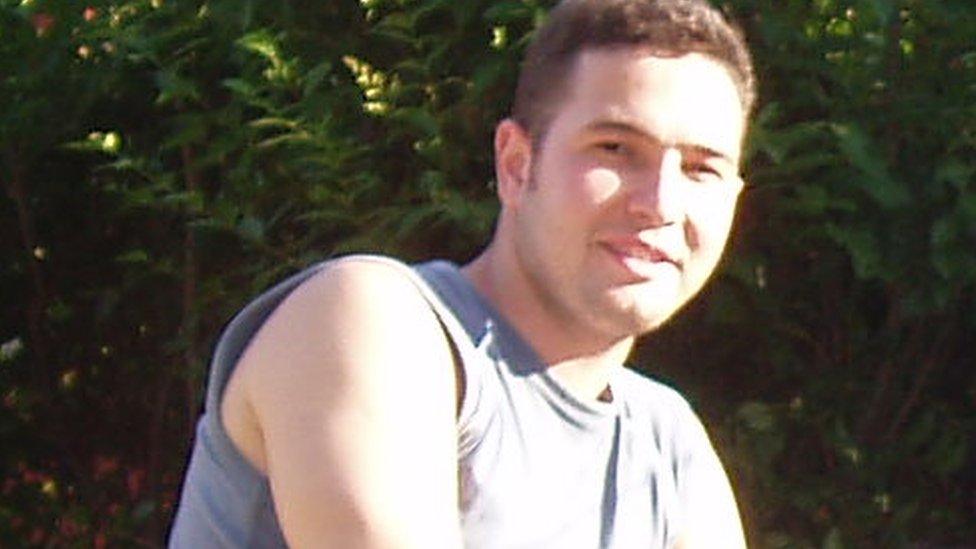
The family of Jean Charles de Menezes has lost a human rights challenge over the decision not to charge any UK police officer for his fatal shooting.
The Brazilian was killed at London's Stockwell Tube in 2005 by police who mistook him for a terror suspect.
The decision that there was not enough evidence to prosecute anyone did not breach human rights laws, judges said, external.
His family, who had argued that the bar for prosecution should be lower, said they were "deeply disappointed".
Mr de Menezes, an electrician who was 27, was followed and shot in the head by police marksmen who mistook him for a suicide bomber.
The incident came amid heightened tensions two weeks after the 7 July London bombings - in which four suicide bombers killed 52 people - and one day after attempted bombings on the London public transport network.
Profile: Jean Charles de Menezes
BBC legal correspondent Clive Coleman said the ruling was "the last opportunity for the family to hold the state accountable".
"The government and the Met were both very quick to acknowledge that what happened was a catastrophic mistake, but this ruling means the end of the road for the family in terms of changing the law," he said.
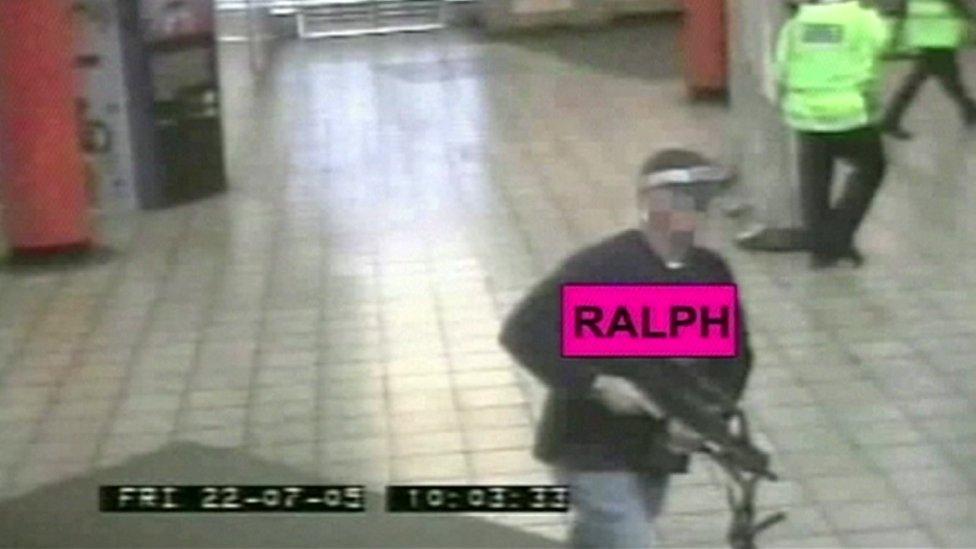
CCTV footage showed Jean Charles de Menezes being pursued by armed officers at Stockwell tube station
Mr de Menezes' family had challenged the test used by British prosecutors to decide whether there is sufficient evidence to charge someone with a crime.
Known as the 51% test, it says that authorities should only prosecute if a conviction is more likely than not.
'Denied justice'
Lawyers for Mr de Menezes' family claimed the threshold for evidence was too high, and was therefore incompatible with Article 2 of the European Convention on Human Rights - which covers the right to life.
However, judges ruled against them by 13 votes to four.
British authorities had thoroughly investigated and concluded there was not sufficient evidence for a realistic chance of conviction of any one officer over the shooting, the court added.
The family had also argued the officers should not have been allowed to say they had acted in self-defence.
However the court in Strasburg backed the legal definition of self-defence in England and Wales - which says there must be an honest belief that the use of force was absolutely necessary.
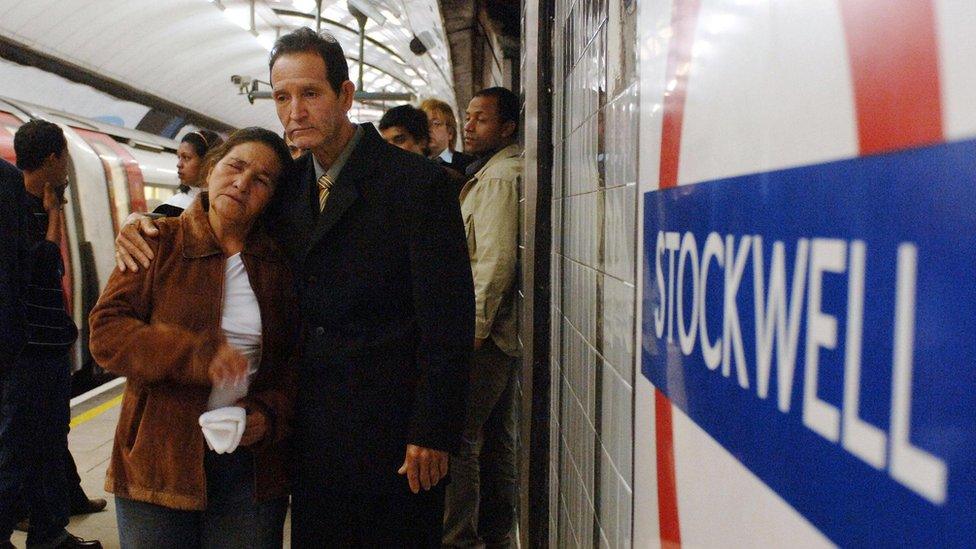
Jean Charles de Menezes' parents, Matozinhos Otone Da Silva and Maria Otone de Menezes, visited the scene of his death at Stockwell Tube station in 2005
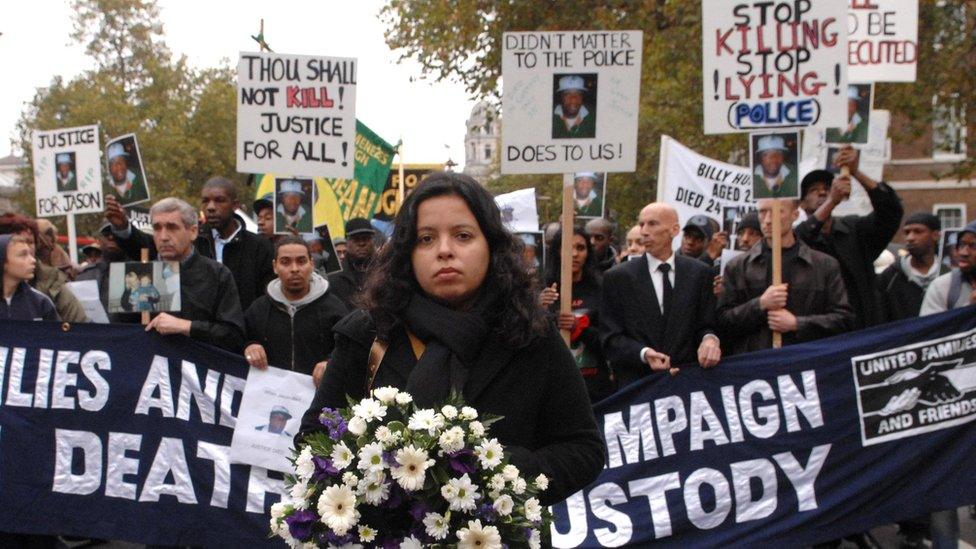
Jean Charles de Menezes' cousin Patricia da Silva Armani, seen here at a protest in 2007, said the family were "deeply disappointed" by the ruling
Mr de Menezes' cousin Patricia da Silva Armani, who was living with him at the time of his death, said the family would not give up the fight for justice.
"We had hoped that the ruling would give a glimmer of hope, not only to us, but to all other families who have been denied the right to justice after deaths at the hands of the police," she said.
"We find it unbelievable that our innocent cousin could be shot seven times in the head by the Metropolitan Police when he had done nothing wrong, and yet the police have not had to account for their actions.
"As we have always maintained, we feel that decisions about guilt and innocence should be made by juries, not by faceless bureaucrats and we are deeply saddened that we have been denied that opportunity yet again."

What is Article 2?
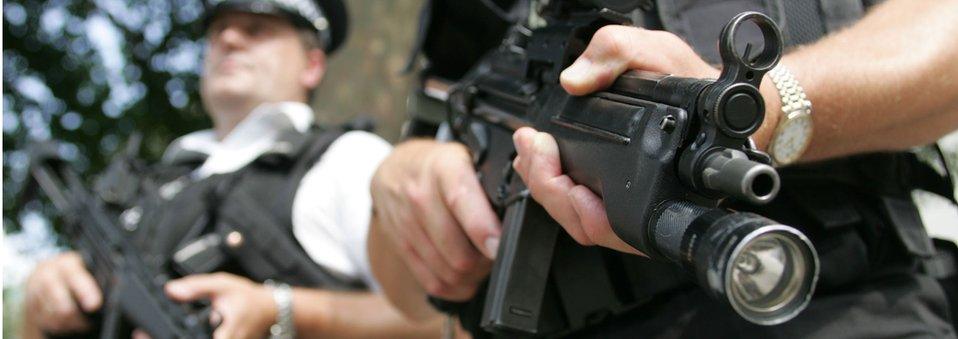
In short, the article, external says the state must never arbitrarily take someone's life, and must also safeguard the lives of those in its care.
It lists three scenarios where force at the hands of the state could be justified:
In defence of any person from unlawful violence
In order to effect a lawful arrest or to prevent the escape of a person lawfully detained
In action lawfully taken for the purpose of quelling a riot or insurrection.
It also requires the government to carry out a independent investigation into all deaths caused by the state. This investigation must be brought about by the state of its own accord, and include an element of public scrutiny.

The European court judgment said the case was "undoubtedly tragic" and the frustration of Mr de Menezes' family at the absence of any individual prosecutions was understandable.
However, the decision not to prosecute any individual officer was not due to any failings in the investigation "or the state's tolerance of or collusion in unlawful acts", the judgment said.
It added: "Rather, it was due to the fact that, following a thorough investigation, a prosecutor considered all the facts of the case and concluded that there was insufficient evidence against any individual officer to meet the threshold evidential test in respect of any criminal offence."
'Tragic case'
The UK government said the Strasbourg court had handed down "the right judgment".
"The facts of this case are tragic, but the government considers that the court has upheld the important principle that individuals are only prosecuted where there is a realistic prospect of conviction," a spokesperson said.
In a tragic case of mistaken identity, undercover police officers began following Mr de Menezes on 22 July 2005 because they thought he looked like Hussain Osman, external, a failed suicide bomber who was on the run.
Mr de Menezes' flat shared a communal entrance with a property linked to Osman.
The undercover police followed him into the station where he was pinned down and shot seven times in the head and once in the shoulder by two officers trained in stopping suicide bombers.
The CPS ruled out prosecuting officers in 2006, but they did charge the Met Police with breaching health and safety laws, leading to a £175,000 fine.

Legal timeline
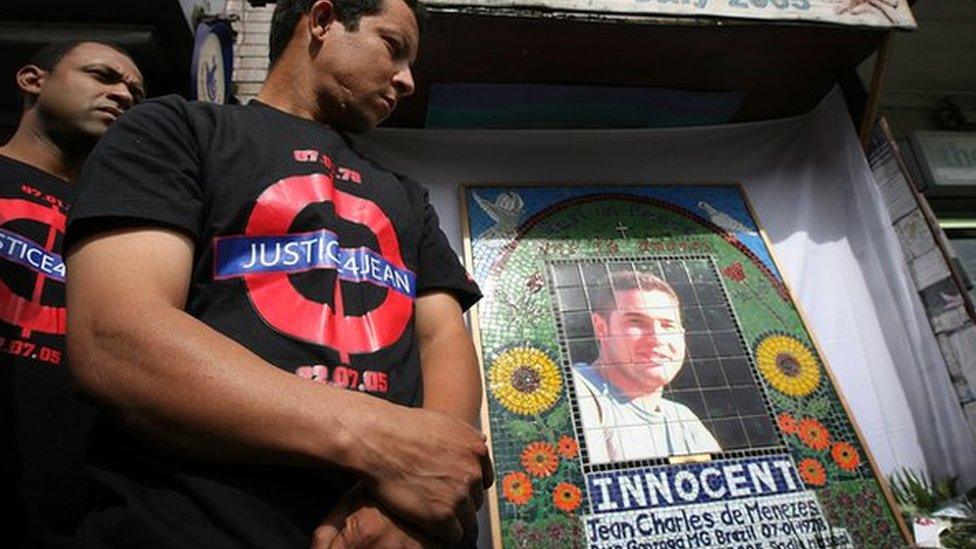
A memorial to Mr Menezes was unveiled outside Stockwell station in 2010
22 July 2005: Shot dead by police at Stockwell Tube station
17 July 2006: CPS says no officers will be prosecuted, but Met Police will be tried for breaching health and safety laws
1 November 2007: Met Police found guilty of breaching health and safety laws and fined
22 October 2008: Inquest under way - coroner rules out unlawful killing verdict a month later
12 December 2008: Inquest jury returns open verdict
16 November 2009: Met Police settles damages claim with family
10 June 2015: De Menezes family take legal challenge to European Court of Human Rights
30 March 2016: Family lose challenge over decision not to charge any police officer over the shooting

- Published10 June 2015
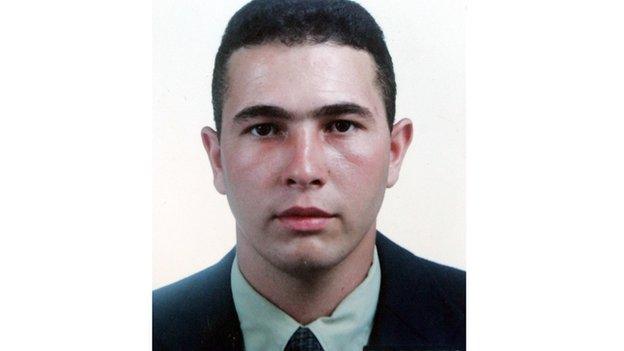
- Published10 June 2015
